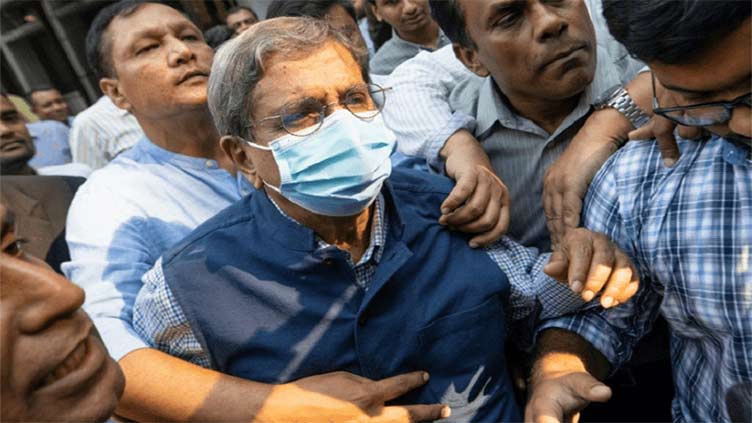Bangladesh grants bail to top editor after outcry

World
The case against Rahman and a reporter stems from a story that quoted ordinary people on inflation.
DHAKA (AFP) – Bangladesh’s high court granted bail on Sunday to Matiur Rahman, one of the country’s most respected editors, after he was charged under a controversial digital law.
Matiur Rahman, 78, the editor of the Bengali-language daily Prothom Alo, requested bail after a lawyer filed a case against him and a reporter last week under the Digital Security Act.
The law has been criticised by the United Nations and human rights groups as a tool to crack down on dissent and harass journalists in retaliation for their work.
“He was granted six weeks of bail,” Rahman’s lawyer Z. I. Khan Panna told journalists outside the courthouse.
The case against Rahman and reporter Shamsuzzaman Shams stems from a March 26 story on Bangladesh’s Independence Day that quoted ordinary people on their struggles to afford basic necessities.
As in many nations, the food prices have soared in Bangladesh following Russia’s invasion of Ukraine. The taka has also fallen sharply against the US dollar.
“What is the use of this freedom if we can’t afford rice,” one labourer told Prothom Alo.
The use of the Digital Security Act against one of Bangladesh’s last remaining bastions of independent journalism sparked immediate international outcry.
UN rights chief Volker Turk called for an immediate moratorium of the law, which he said Dhaka was using “to arrest, harass and intimidate journalists and human rights defenders, and to muzzle critical voices online”.
Reporters Without Borders added that the case has no legal basis and is “clearly an act of intimidation by the government towards all journalists”. Rahman could face up to seven years in jail on these charges if convicted.
Activist Rezaur Rahman Lenin welcomed the bail announcement, but added that Rahman “should not have been sued in the first place”.
“The Digital Security Act is a repressive law and it should be scrapped without any hesitation,” he said.
According to a police filing after a Right to Information query by Amnesty International, between October 2018 and June 2021 at least 2,646 cases were filed under the act, with almost 6,000 people accused and 2,607 arrested.
This has stoked concerns that the South Asian nation of 170 million people has taken an increasingly authoritarian turn under Prime Minister Sheikh Hasina, who has been in power since 2009.

